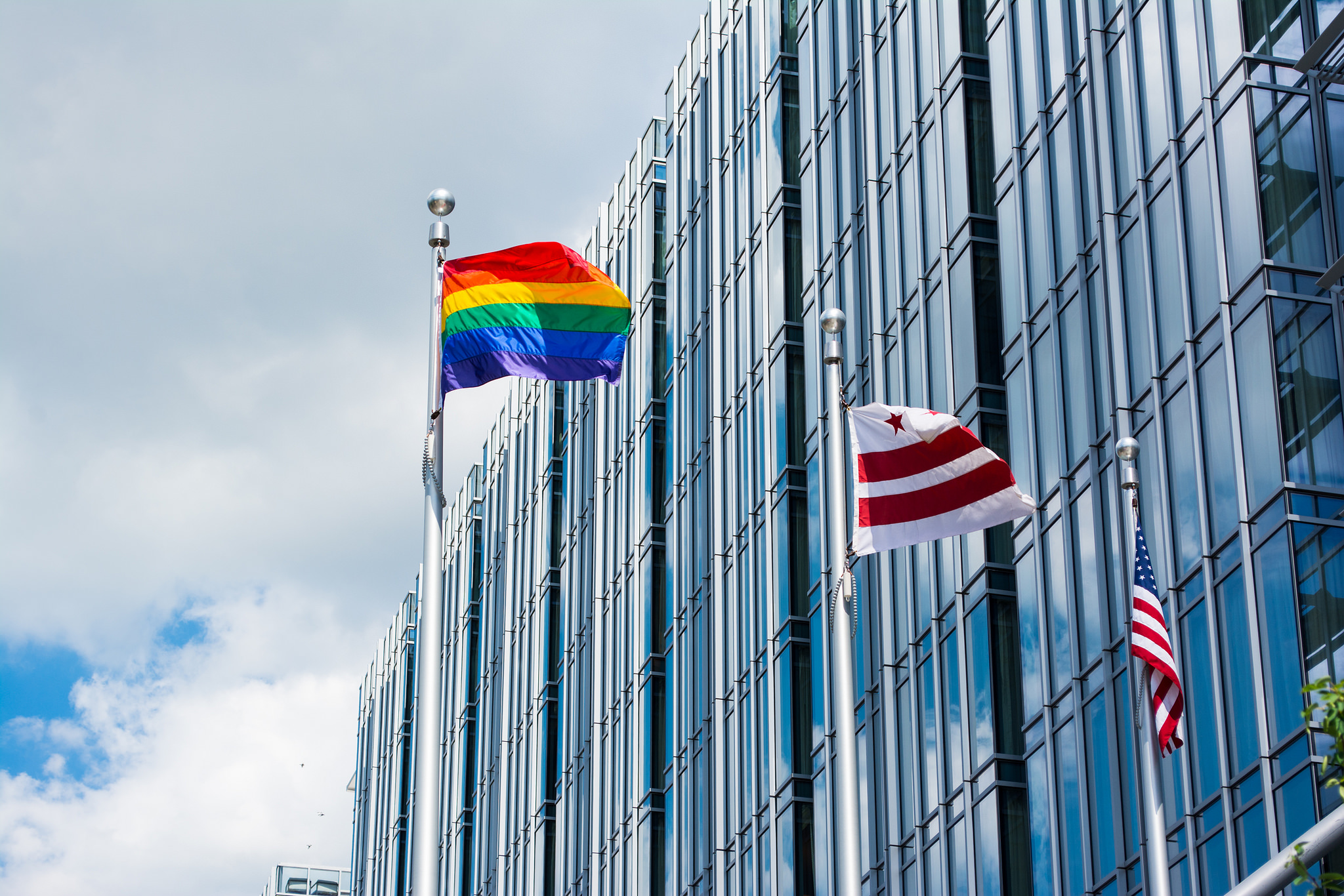Views expressed in opinion columns are the author’s own.
The Secure A Fair And Equitable Trial Act of 2017 — a bill that proposes banning the use of an “LGBT panic defense” in Washington, D.C. — has been stalled in committee since February 2017. The City Council must prioritize passing this bill, as the use of the LGBT panic defense is problematic and discriminatory.
LGBT panic is a defense used to attempt to justify a violent crime by claiming it occurred because of the victim’s sexual orientation or gender identity. Far too many states still consider LGBT panic a legitimate legal defense; only California, Rhode Island and Illinois have actually managed to ban it, though a number of other states are also in the process of banning it.
[Read more: UMD’s Health Center has great LGBT resources. Why don’t students know about them?]
The LGBT panic defense is problematic for a number of reasons. It was based on “gay panic disorder,” which claimed that a perpetrator could experience a nervous breakdown when met with a sexual proposition from their victim. The breakdown — and subsequent actions against the victim — were said to be triggered by the victim’s sexual orientation or gender identity. However, the American Psychiatric Association quashed this “disorder” and removed it from the DSM way back in 1952. Somehow, the legal system has yet to recognize this distinction.
That isn’t the only issue: When LGBT panic is accepted as a valid reason for killing or assaulting another person, you take the responsibility and agency out of the hands of the perpetrator. You insinuate they had no control over their impulses or reactions, and therefore it’s OK that they broke the law.
Our society is founded upon the notion that humans are sentient beings that can control their own actions. As soon as you remove that agency and control from some violent criminals, you can start to take it away from others. By this thinking, it could become OK to blame a woman for her rape — she provoked him with her short skirt, he couldn’t help himself.
Save for very specific instances, people are in control of their own actions. If you can’t stop yourself from physically harming others because of your own beliefs, you shouldn’t be allowed around others in the first place.
[Read more: LGBT youth still struggle to come out. Stories like ‘Love, Simon’ can help.]
“LGBT panic” defenses simply excuse what is, in reality, a hate crime, which the FBI defines as an illegal act that is “motivated in whole or in part by an offender’s bias against a race, religion, disability, sexual orientation, ethnicity, gender or gender identity.”
LGBT panic should have no place in our legal system. If a violent crime occurs because the attacker is biased against the victim’s sexual orientation or gender identity, then that isn’t LGBT panic — that’s a hate crime.
Liyanga de Silva is a junior English major. She can be reached at liyanga.a.ds@gmail.com.



